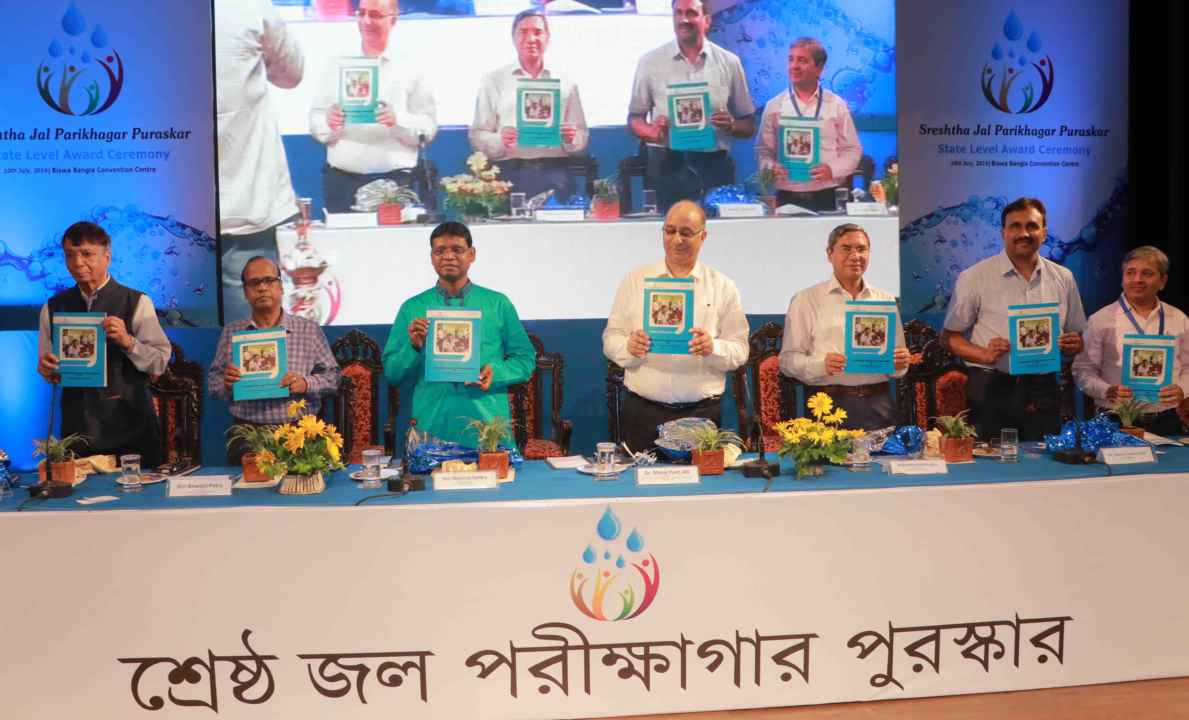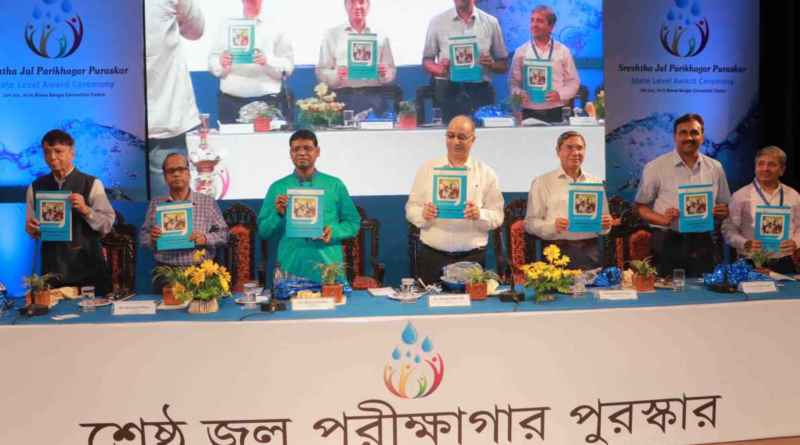WHO/UNICEF Joint Monitoring Programme Report 2019 on Water Supply, Sanitation and Hygiene announced“Sreshtha Jal Parikhagar Puraskar”
Desk Correspondent, abptakmaa, Kolkata, 13th July 2019 : According to WHO/UNICEF Joint Monitoring Programme Report 2019 on Water Supply, Sanitation and Hygiene, nearly two billion people around the world are  using a source of drinking water contaminated with faeces. Many more drink unsafe water because safety can be compromised during transport, storage and handling. Ensuring safe drinking water for all is a key target of the Sustainable Development Goals (SDG 6.1). Water safety is also of primary importance for infants and young children who are especially vulnerable to diarrhoea and other water-related diseases.
using a source of drinking water contaminated with faeces. Many more drink unsafe water because safety can be compromised during transport, storage and handling. Ensuring safe drinking water for all is a key target of the Sustainable Development Goals (SDG 6.1). Water safety is also of primary importance for infants and young children who are especially vulnerable to diarrhoea and other water-related diseases.
UNICEF has been supporting the Public Health and Engineering  Department in West Bengal to develop methods and mechanisms for the direct testing of water that will help in identification of contaminations and improving the quality at every source. The laboratories play a critical role in these water quality assessments and strengthening mechanisms for quality monitoring. Recognizing the significance of these quality assessments by the Rural Water Quality Laboratories, Public Health Engineering Department and UNICEF jointly organized “Sreshtha Jal Parikhagar Puraskar” today in Kolkata to felicitate the best performing laboratories across all 22 districts of the state.
Department in West Bengal to develop methods and mechanisms for the direct testing of water that will help in identification of contaminations and improving the quality at every source. The laboratories play a critical role in these water quality assessments and strengthening mechanisms for quality monitoring. Recognizing the significance of these quality assessments by the Rural Water Quality Laboratories, Public Health Engineering Department and UNICEF jointly organized “Sreshtha Jal Parikhagar Puraskar” today in Kolkata to felicitate the best performing laboratories across all 22 districts of the state.
Hon’ble Minister of State, Public Health Engineering Department, Govt. of West Bengal, Shri Shyamal Santra, in the presence of Key Department and UNICEF officials, released the “Sreshtha Jal Parikhagar Puraskar” – Rural Drinking Water Quality Laboratory Assessment Guidelines and felicitated the State Level Referral Laboratory, top performing district and sub-district level laboratories with trophies, mementos and certificates and applauded them for their sincere efforts. Publicity : Launcherz.



